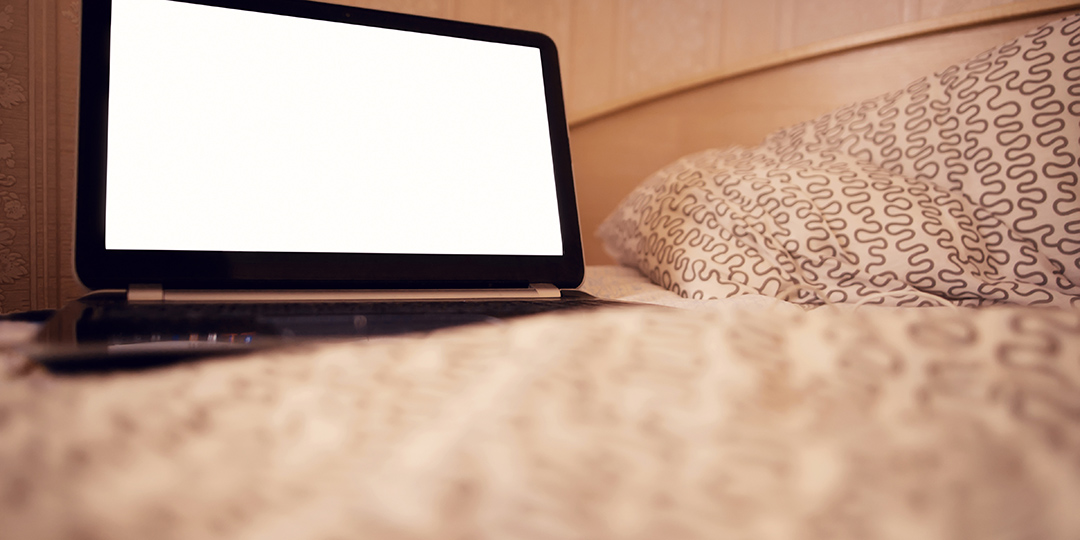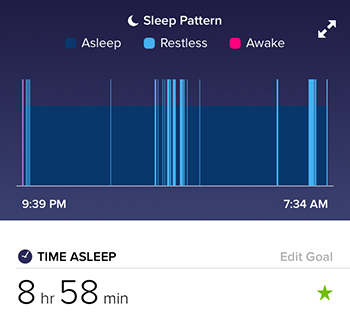
Is Technology Killing our Sleep?
One thing that I love are ‘life hacks’. I love figuring out better ways of doing things and self-improvement methods. Why not be the best you can, right? One ‘hack’ that I came across a few months ago was to reduce your screen time and stop using technology before you go to sleep. Now I’m not one of those die-hard, stay-up-all-night people that get stuck on social media until the wee hours of the morning. I think I’m pretty reasonable, but do admittedly hop on Facebook and Instagram one more time before I turn out the lights. But that shouldn’t be a big deal, right? Wrong.
Studies done by NASA, NSF (National Sleep Foundation) and countless universities have found that not only does the use of technology (screens) before bed impact your brain; it impacts your physical health too! The biggest factor is the blue light that is emitted from electronics, whether it’s a laptop, cell phone, iPad, eReader or even certain TVs. Our eyes take in that light and our brain interprets it to be daylight and reduces our production of melatonin, a key ‘ingredient’ in sleep regulation. As well, technology can stimulate our brains and keep our adrenaline pumping, thereby taking much longer to fall asleep. Trying to get in one more funny cat video or that next level of candy crush is crushing all hopes of getting a restful night sleep.
So, why turn off the electronics?
- You’ll get more quality sleep – hormone levels will remain normal and help you fall asleep and stay asleep
- More sleep = better health – those who are sleep deprived are prone to weight gain, obesity, diabetes and cardiovascular disease, just to name a few
- Unplug for less stress – do you really need to stew over the latest family drama on Facebook or keep your brain on overload cleaning out your email inbox?
- Use the extra time to spend with family – talking, playing a game, reading a paper book… I know, these seem to be a little foreign these days!
I thought I’d try this out for myself – yup, I’m a guinea pig! I love to read and do read from a paper book every night before I go to bed, to turn my brain off. But, would it make a difference if I didn’t touch my cell phone at all? Well, after giving this a try I looked at my Fitbit sleep patterns and here’s what I found:
Using my cell phone to ‘surf the net’ before bed

Stopped using my cell phone an hour before bed

Hmmm… I sure got a lot of sleep on the first night… however, I had over an hour of restlessness throughout the night. The second night I didn’t use my cell. It wasn’t even in the room. And I slept right through with nearly no sleep interruption at all. Is this conclusive? It certainly has it gaps and extenuating circumstances, however overall it definitely makes me more aware of how electronics are impacting my quality of sleep!
So, if I had my vote, I’d say technology away! Expert opinions may vary, but on average, you should turn off your devices around 45 minutes before you plan to go to sleep. Don’t forget the kidlets either! Same rules (and detrimental effects) apply. And if you absolutely must use electronics before bed, use a blue light filter. Many devices now have a filter built right in and there are great apps on the iOS and Android stores. Good luck and sweet dreams!
 About the Author
About the Author
Virginia Johnson
Virginia Johnson is Marketing & Creative Coordinator for SRG. When she’s not designing ads, creating campaigns, writing copy and being creative at work, she can be found curled up with her nose in a book, working out or proudly whisking her daughter to and from extracurricular activities.
Please share our posts…

